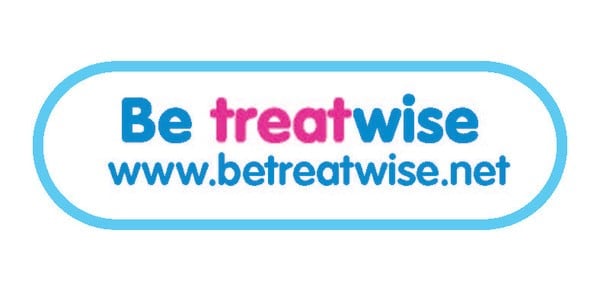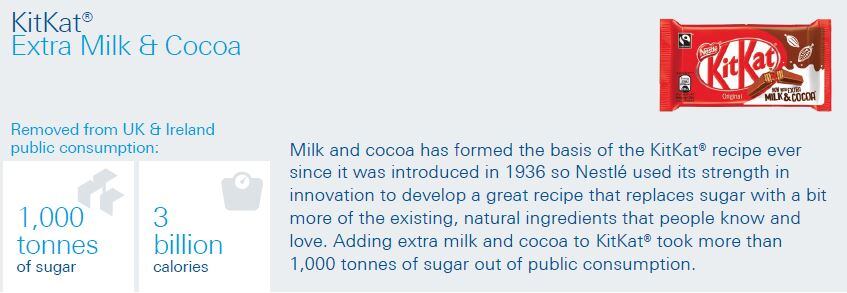Cadbury originally developed the ‘Be treatwise’ label in 2006.
Mondelēz UK, Ferrero UK and Mars Wrigley Confectionery UK will now adopt a redesigned mark.

“The new Be treatwise label is currently in development and we will be able to share more in the coming months,” a Be treatwise spokesperson told ConfectioneryNews.
The Be treatwise companies will also consult parents, grandparents and health experts on new actions industry could adopt to help families eat responsibly.
The companies will then look to trial at least one of these measures in the UK market, which will be evaluated by an independent panel.
Be treatwise urges other companies offering confections with 250 kcal or less per portion to join the initiative.
Nestlé focused on reformulation
Nestlé is not part of the program, but today announced it cut 7.4% of sugar in its UK & Ireland confectionery range last year.
In March 2017, Nestlé UK & Ireland pledged to remove 10% of sugar in its confectionery range by the end of 2018.
“Anything that confectionery companies can do to encourage healthier diets is to be applauded,” a Nestlé spokesperson told us when asked why it has not signed up for Be treatwise.
“ Our own focus has been on reformulating our products and improving our nutritional labelling over a number of years to make it easier for consumers,” they said.
Be treatwise: Cutting sugar compromises taste
The Be treatwise companies say reformulation has limitations and hope a logo on products will help consumers maker smarter choices.
The Be treatwise website says: “The science does not yet exist to substitute sugar in chocolate without compromising on taste or quality.”
“We haven’t cracked this yet, but our research and development teams are constantly looking for ways to reduce sugar while retaining the great taste people love.”
Asked why Be Treatwise could not cut sugar like Nestlé, a spokesperson for the initiative said: “We can’t comment on what our competitors are doing, but as we’ve said, we continue to explore the science behind reformulation.”

Nestlé sugar tech
Nestlé claims its sugar reduction strategy has not compromised the taste of its confectionery brands.
Nestlé said in a report published today it had achieved sugar reduction for brands such as KitKat and Milkybar by adding more existing non-artificial ingredients such as cocoa and milk.
The company filed a patent for technology it claims restructures sugar naturally in late 2016.
It said at the time, the faster dissolving sugar tech could reduce total sugar content by up to 40% in its confectionery products and would be rolled out in its confectionery range by 2018.
“The ground-breaking method to structure sugar differently is a great example of the work we are doing in research and development to make cutting-edge food technologies a reality however this has not been used in any of our products yet,” said a Nestlé spokesperson today.
The company spokesperson said Nestlé is focusing on using the tech in its own products and said it’s too early to say if the company will license its method.
Regulatory pressure

Public Health England (PHE) yesterday set a target to cut 20% of calories in pizzas, ready meals, ready-made sandwiches, meat products and savory snacks by 2024. The government body hopes the move will help curb childhood and adult obesity.
Chocolate and sugar confectionery are excluded from the calorie target, but are part of a voluntary PHE target set in August 2016 to cut sugar 20% by 2020, versus 2015 levels.
PHE recommends chocolate should contain a maximum of 43.7 g of sugar per 100 g by 2020, while sugar confectionery should have no more than 48.4 g by the same date.
Some confectionery companies previously pledged to reduce calories as part of the UK government’s 2012 Public Health Responsibility Deal. The deal urged food & drink makers to help reduce the UK’s total calorie consumption by 5 billion calories (kcal) a day.
Food and Drink Federation (FDF) members including Mondelēz International signed up to a 250 calorie cap on single-serve confectionery sold in the UK in 2016.
Separately, pressure group Action on Sugar has called for the UK’s sugary drinks tax to be extended to confectionery and urges a government ban on confectionery price promotions.
